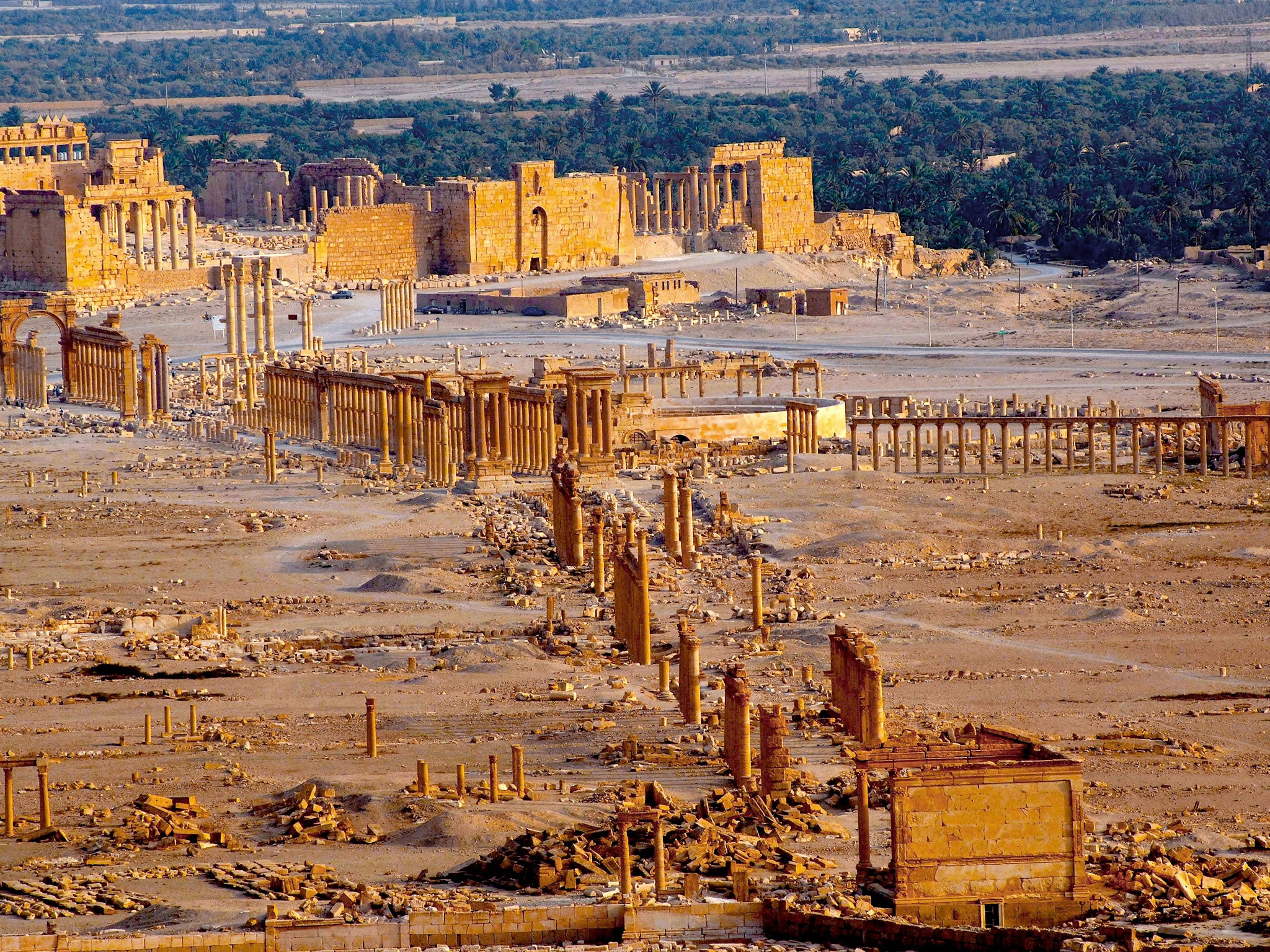Isis leaves Palmyra 'like city of ghosts' after being forced out of strategic stronghold by Syrian forces
Residents said Isis had evacuated all of Palmyra's civilians to other territories under its control

The ancient city of Palmyra is "like a city of ghosts" after Syrian government forces drove Isis militants from the strategic stronghold.
Residential neighbourhoods in the adjacent modern towns were found deserted. Residents told The Associated Press Isis had evacuated all of Palmyra's civilians to other territories under its control.
"It was like a city of ghosts, we did not see a single family in the town," one of the first journalists to see the liberated city told BBC Radio 4.
"It's not completely clear, but it's understood Isis forced the residents out of the town and forced them to flee with them."
Syrian government forces retook "complete control" of the city by Sunday, marking the biggest military defeat Isis has suffered so far.
Their forces were driven out by Syrian troops and Lebanese Hezbollah militiamen, backed by Russian air strikes.
Over 400 Isis fighters were killed in the battle for the city, according to Rami Abdulrahman, the director of the UK-based Syrian Observatory for Human Rights.
Russian jets carried out 40 combat sorties around Palmyra on Sunday, striking 117 "terrorist targets" and killing 80 Isis fighters, according to Moscow's defence ministry.
Palmyra recaptured by Syrian government forces
Show all 10When Isis took control of the Unesco World Heritage site last May, they destroyed two of its most elaborate temple buildings and a Roman triumphal archway. They also beheaded Khaled al-Asaad, the city's former head of antiquities, and hung his body on display.
The extent of the destruction remains unclear however, with initial footage on Syrian TV showing widespread rubble and shattered statues.
A sculpture of the Greek goddess Athena was shown decapitated, and the museum's basement appeared to have been dynamited, with broken statues littering the floor.
But Maamoun Abdulkarim, director of the museums and antiquities department in Damascus, said Palmyra's Great Colonnade had suffered only minor damage.
"We will rebuild what you have destroyed," he said, addressing Isis.
Syrian forces say they will use Palmyra as a base to "broaden operations" against Isis, particularly towards the extremist group's de facto capital, Raqqa, and the eastern city of Deir Ezzor.
Additional reporting by agencies
Subscribe to Independent Premium to bookmark this article
Want to bookmark your favourite articles and stories to read or reference later? Start your Independent Premium subscription today.

Join our commenting forum
Join thought-provoking conversations, follow other Independent readers and see their replies